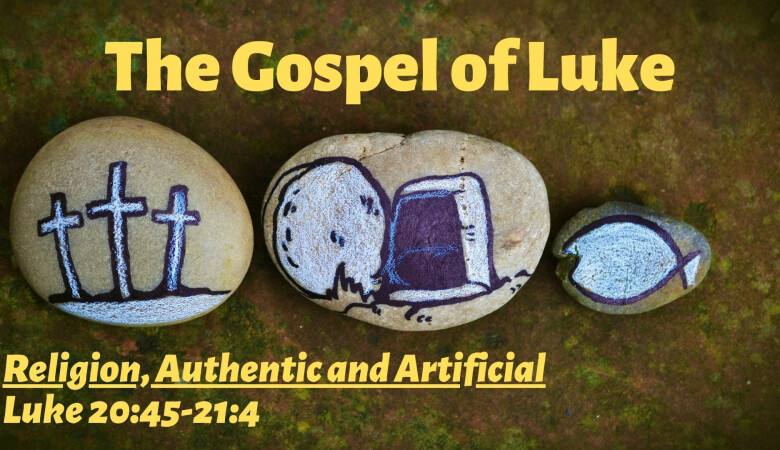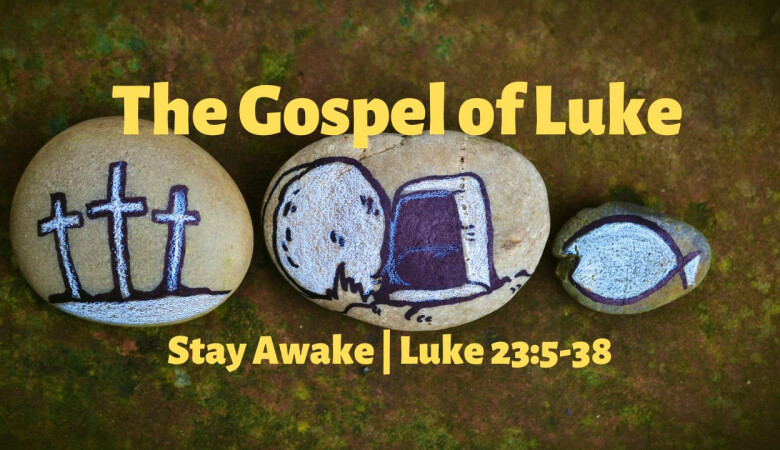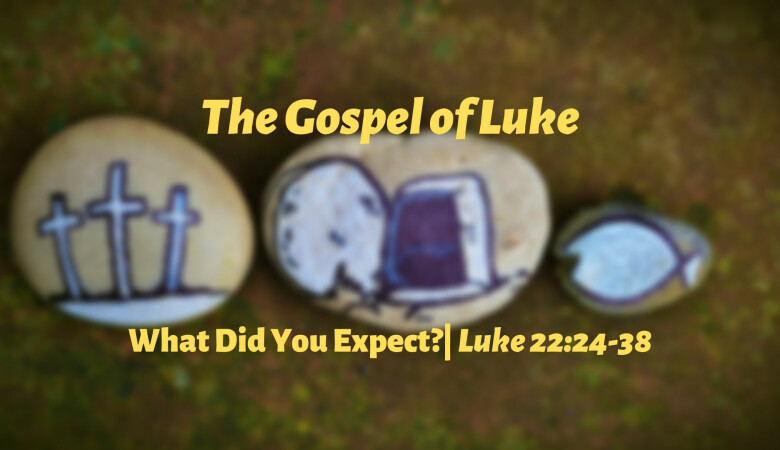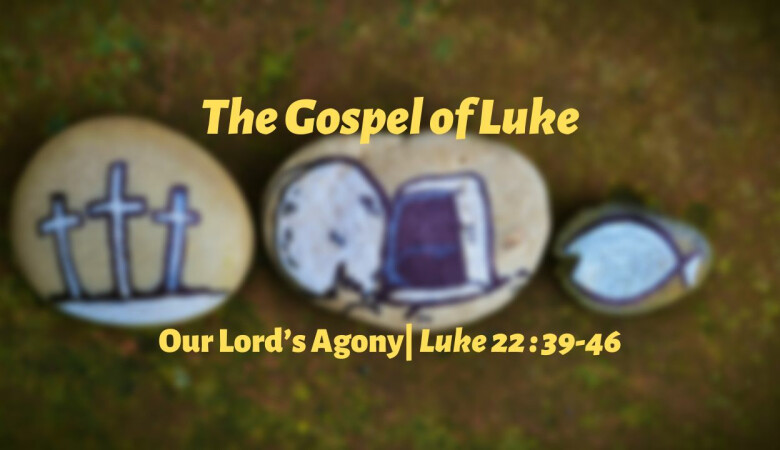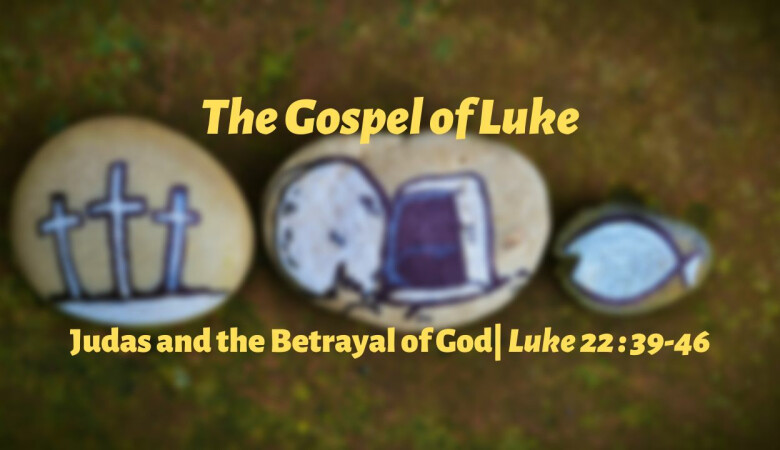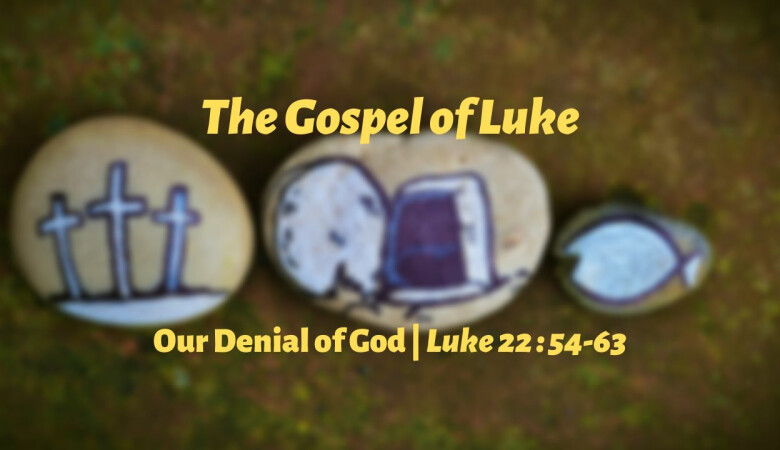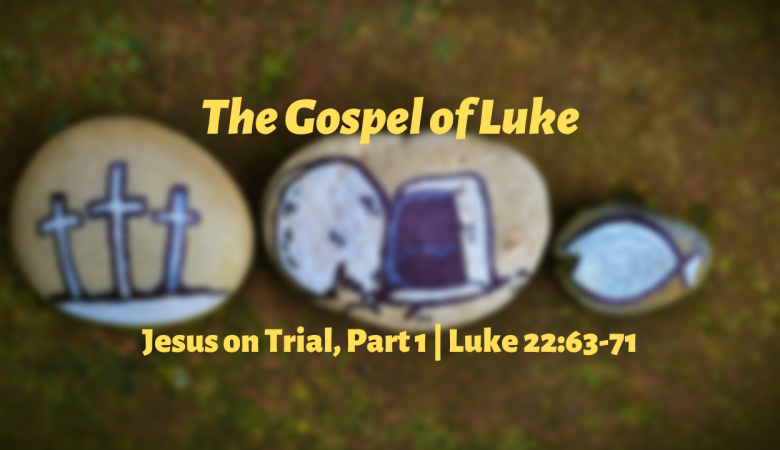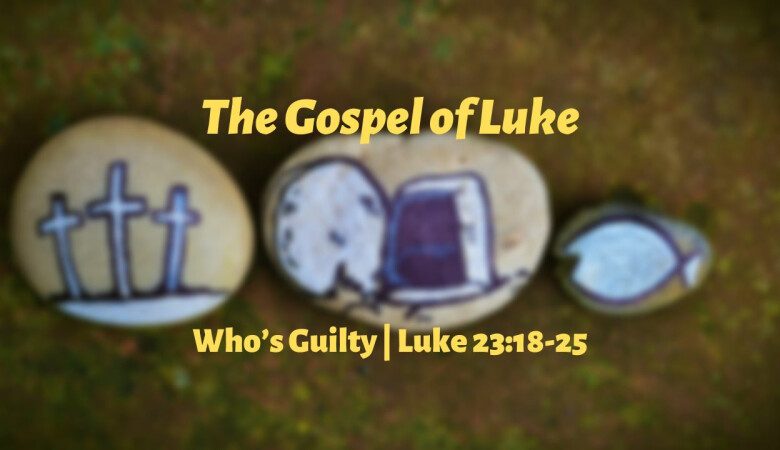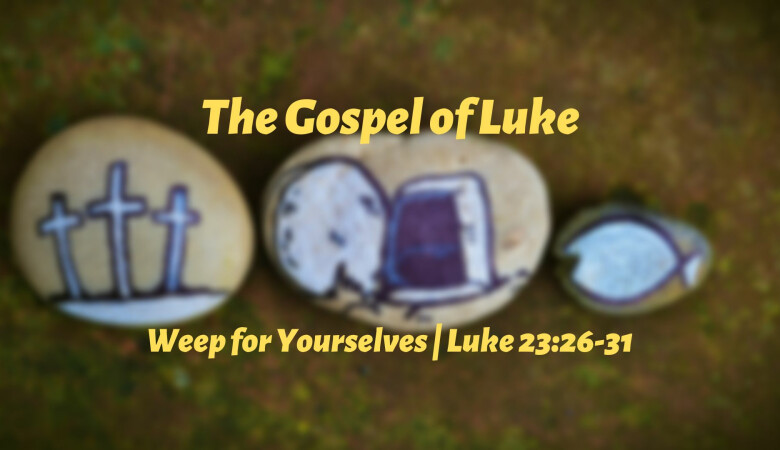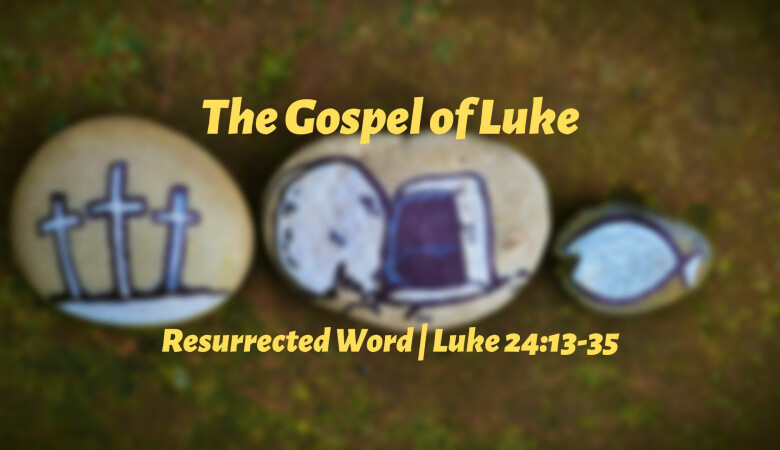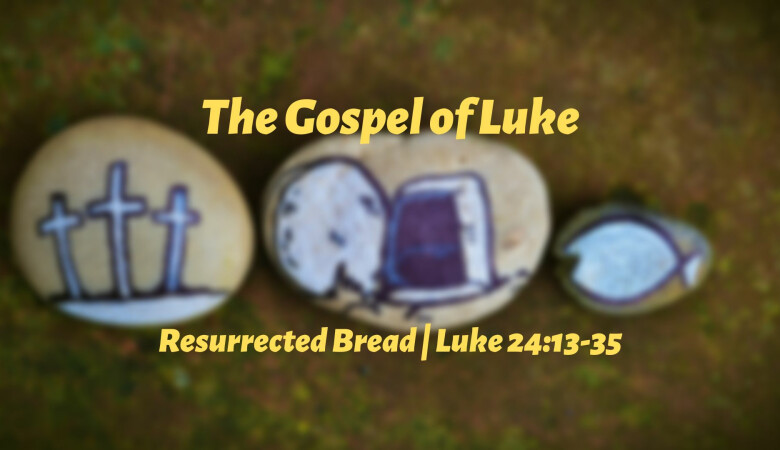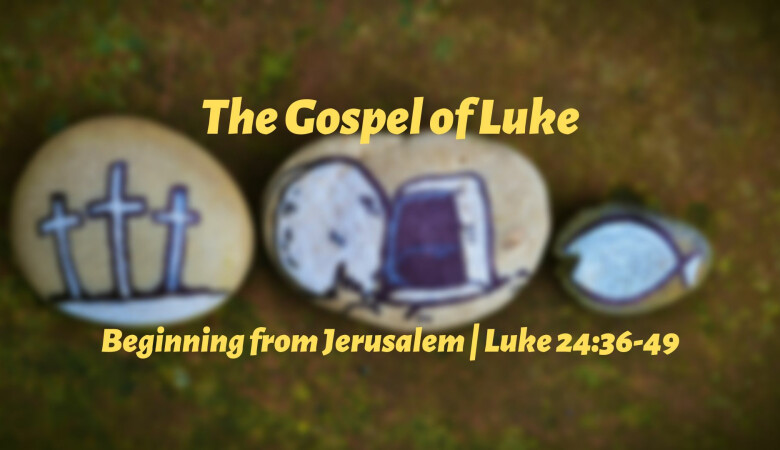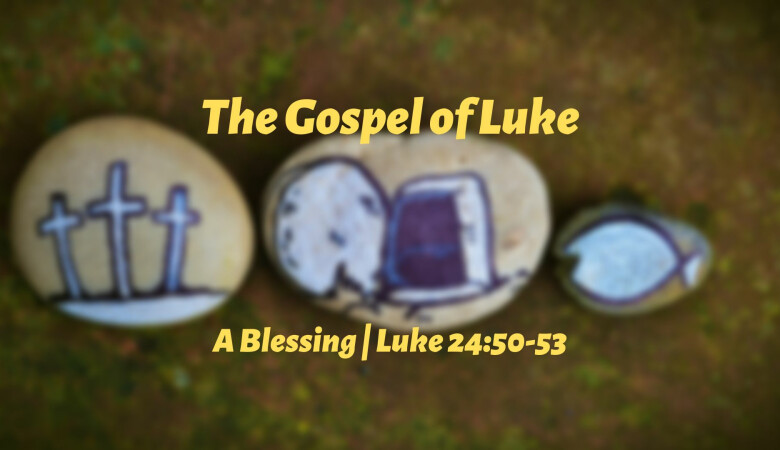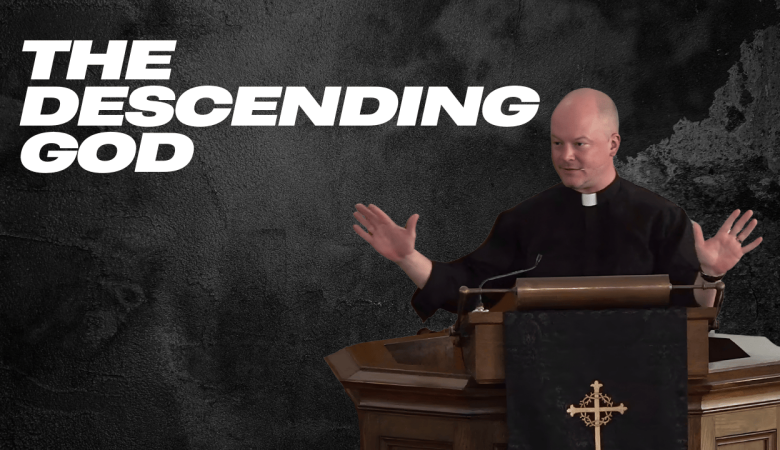Series: Luke
Jesus on Trial, Part 2
March 03, 2024 | Peter Rowan
Passage: Luke 23:1-16
ALL SERMONS IN SERIES
Summary
Luke 23 takes us further into Jesus' trial, but this time it's not with those who are part of the Faith but rather those who are outside of it. Interestingly, they seem a lot more open. Whereas the religious leaders already had their minds set against Jesus, Pilate and Herod both appear to be open to him, Herod is even said to be "very glad". But openness doesn't equate to acceptance. In fact, their openness leads to the same hostile action Jesus' had just received in the High Priest's courtyard, Herod mocks him and Pilate "punishes" him. Interestingly enough, many non-Christians find Jesus incredibly compelling, but finding him compelling is much different than worshipping him as Lord and Savior.
Transcript
What do you make of Jesus?
I think that’s a great question for those of you who are convinced of the claims of Christ and for those of you who are unconvinced.
What do you make of Jesus?
And in some ways we could ask that simply as a historical question. Did he exist? We could also make that a question of faith and life. What do we make of the claims of Jesus? If he did exist should I give my life to following him?
One of the things that Luke particularly is doing is inviting us to ask these questions and seeking to answer them for us.
On the 18th of July in the year 64 a great fire was started in Rome, in one of the more derelict areas of Rome. It lasted for nearly a week and completely destroyed three of Rome’s 14 districts. You may have heard it said that Nero played the fiddle as Rome burned. That’s probably not true, mostly because the fiddle hadn’t been invented yet anyway. What is true is that we know that he largely blamed Christians for the fire. Well, initial rumors had it that Nero started the fire, but he blamed the Christians. Christianity had been growing quickly across the Roman empire and it had largely been associated with Judaism. In fact, the two went hand in hand for most of the first century. Rome only recognized national religions. In fact, like today religion was mostly public ceremony, going hand-in-hand with politics. So Judaism was safe, but christianity not so much. Christianity didn’t really fit. In fact, Christians for this reason were often called “Atheists”. They didn’t fit and so during this time it was often illegal to practice Christianity. It was into this setting that the gospel of Luke was written.
Luke begins his book like this:
3 it seemed good to me also, having followed all things closely for some time past, to write an orderly account for you, most excellent Theophilus, 4 that you may have certainty concerning the things you have been taught.
Luke is almost certainly writing to someone high up in office in the Roman government (that why he calls him “most excellent”) who is interested in Christian faith but is keeping his name secret (he is just called “theophilus”, which means friend of God). Luke is writing likely 10 years or so after the burning of Rome and saying that he is intent on providing an accurate account of Jesus for this man. In doing this he is giving a defense of Christian faith and asking the readers of his account “what they make of Jesus.” Luke is very careful to situate Jesus historically. Luke 1:5 says “In the days of Herod, King of Judea.” and 2:2 tells us that the first Christmas happened specifically during “the first registration when Qurinius was governor.” There is no doubt that Luke is saying “these things happened.”
Luke was writing in part to address all of the skeptics. There were all kinds of skeptics then just as there are now. When asked “what do you make of Jesus?” the response is just, “Not much. After all he is make believe. I doubt he even lived, but if he did he didn’t die on a cross and didn's rise from the dead.”
For a long long time one of the great reasons to even doubt the historicity of Jesus and his dead and Luke specifically and the New Testament generally, was because of the belief that Pontius Pilate didn’t exist. The only evidence of his existence was in the Bible and Pilate is such an important part of the whole story. I mean, Pilate even made it in the Apostle’s Creed, “He suffered under Pontius Pilate”! So Pilate himself, who we have right here in this passage that is before us in Luke 23 was a significant reason to doubt the Christian claims. Well, in 1961 a team of Italian archaeologists discovered an inscription at Herod’s amphitheater in the town of Caesarea. The inscription read “Pontius Pilate, prefect of Judea, has dedicated to the people of Caesarea a temple in honor of Tiberius.” Pilate was not only a real person, but he was famous enough that his name was inscribed on a public monument! So the doubters for this reason were again faced with this question: what do you make of Jesus?
Last week we saw that the guards used Jesus to project their strength and the religious leaders interacted with Jesus to protect their power.
Interestingly, now we have Jesus brought before two leaders who are not religious leaders and if the religious leaders and their guards were just against Jesus, what we find in these two “non-Christians”, if you will, is a greater openness to Jesus.
What do they make of Jesus?
Look with me down at the first section here in Luke 23 and let’s consider Pilate.
Then the whole company of them arose and brought him before Pilate. 2 And they began to accuse him, saying, “We found this man misleading our nation and forbidding us to give tribute to Caesar, and saying that he himself is Christ, a king.” 3 And Pilate asked him, “Are you the King of the Jews?” And he answered him, “You have said so.” 4 Then Pilate said to the chief priests and the crowds, “I find no guilt in this man.” 5 But they were urgent, saying, “He stirs up the people, teaching throughout all Judea, from Galilee even to this place.”
The religious leaders are smart. They know that if they just go to Pilate and claim that Jesus is blaspheming and claiming to be the Son of Man, that divine title from Daniel that we looked at last week, well Pilate is not going to care about their little religious debates. They know that. So they bring Jesu before this Roman prefect, the Roman leader of Judea at the time, and say, “This man is misleading out nation, forbidding us to pay tribute to Caesar and saying he is Christ, a king.” Now, keep in mind that all of that is false. We actually know that Jesus did say, “Give to Caesar what is Caesar’s” (basically, pay your taxes!) and we know that in that previous passage he wasn’t willing to answer their question “are you the Christ?”! So, they are just making stuff up. They misrepresent Jesus.
But Pilate seems genuinely interested.
“Are you the King of the Jews?”
Jesus answers “You have said so,” which, again, is an odd answer, but it is a soft way of affirming that he is but also saying, “It’s probably not what you think, Pilate.” And so Pilate says, “He’s interesting, but kind of harmless, no guilt.”
But Pilate learns that he is a Galilean and he decides that maybe he can get away from having to actually answer the question, “what does he make of Jesus.” So he sends him to Herod.
Let’s look at Herod now:
8 When Herod saw Jesus, he was very glad, for he had long desired to see him, because he had heard about him, and he was hoping to see some sign done by him. 9 So he questioned him at some length, but he made no answer.
Ok, what we learn immediately was that Herod was very glad to see Jesus. We learn that he had desired to see Jesus. He had heard about him and he wanted to see him and hear him for himself. Beyond this, what we learn was that he was hoping to see some sign done by Jesus.
What we have again is someone who seems genuinely interested in Jesus. And he isn’t really even into the whole debate with the religious leaders. What we have is at least a real openness. I want you to think about this with me. Many of your neighbors are like this. They really are interested in Jesus. They have heard of him from a distance. Maybe they have heard some of his teachings about loving your neighbor as yourself and judging not and stuff like that and they are at least interested. Maybe they have heard that he did some really miraculous things. I read a few years ago that 90% of Americans say that they would attend a Christian small group Bible study if they were invited. 90%. That’s a lot! That’s a lot of interest in checking out Jesus.
Maybe you are hear this morning or maybe you are watching online because you have heard of Jesus and you are at least interested. I want to encourage that interest. Stay interested.
But as much as I want you to see here in this passage that Pilate and Herod on interested and open when the religious people have totally made up their minds against him and I want to encourage you with this idea that so many people who are not part of the Faith are genuine invested in it, the outcome of Pilate and Herod is the same outcome that we have with the religious leaders.
What do they make of Jesus?
Well, their interest does not lead to worship. Their interested is for themselves. Think of it. The relies leaders misrepresent Jesus by saying that he misleads their nation, that he forbids paying taxes to Caesar and that h his a king. Well, the only threat their possibly to Pilate himself is the idea that their may be someone claiming to be a king! If he is a King, he is a threat to Pilate. Pilate’s interest is for himself.
What about Herod? He’s also interested for himself. He wants to see Jesus and he wants Jesus to perform for him. Verse 9 says Herod questioned Jesus at some length, but Jesus didn’t answer. Jesus wouldn’t play Herod’s games.
So, what do they make of Jesus?
They were interested in him, but for their own purposes. And when he didn’t come through like they wanted, they treated him the exact same way the others did.
Verse 11: And Herod with his soldiers treated him with contempt and mocked him.
And then look down at verse 16. This is Pilate speaking: I will therefore punish and release him.
What did we see happen to Jesus in the last section? Jesus was mocked and beaten by the guards of the religious leaders. Now in this section we have the same outcome. Jesus is mocked by Herod and beaten by Pilate. If you are interested and open to Jesus only for your own it will lead to rejecting him.
What do you make of Jesus?
What I want to suggest to you this morning is that an interest in Jesus and even an openness to Jesus isn’t enough. If you are interested in Jesus and open to Jesus, but it is all for your own purposes it will only lead to ultimately rejecting him.
Luke wants us to ask this question. He has been asking us this question all throughout his book. Jesus really lived. He was really born. He really taught the things he taught. The miracles that you have heard he really performed. We will get to Luke telling us loud and clear that Jesus really did die and that he really rise from the dead. Luke wants us to ask ourselves, “What do we make of Jesus?”
My guess is that most of you have read the book or watched the movie The Lion, the Witch and the Wardrobe. I sure hope you have. It’s so good. Well, that book tells the story of a young girl who find her way into another world, Narnia, through a wardrobe in an old county mansion in England. As you might image, her two brothers and her sister think she has gone mad because she claims to have gotten into this other world from our world through a wardrobe. It creates so much conflict between these bothers and sisters that the older brother, Peter and the older sister, Susan go and talk to the owner of this great country mansion, the Professor. The professor asks them about their sister, about her sanity and all and then says this:
"Logic!" said the Professor half to himself. "Why don't they teach logic at these schools? There are only three possibilities. Either your sister is telling lies, or she is mad, or she is telling the truth. You know she doesn't tell lies and it is obvious she is not mad. For the moment then, and unless any further evidence turns up, we must assume she is telling the truth.
I want to suggest to you the same thing about Jesus. The religious leaders made up lies about him, but he was not one to lie. He was also most definitely not made. So assume that he is telling the truth.
But I also want to share with you a great quote from another C. S. Lewis book, Mere Christianity.
"I am trying here to prevent anyone saying the really foolish thing that people often say about Him: I'm ready to accept Jesus as a great moral teacher, but I don't accept his claim to be God. That is the one thing we must not say. A man who was merely a man and said the sort of things Jesus said would not be a great moral teacher. He would either be a lunatic — on the level with the man who says he is a poached egg — or else he would be the Devil of Hell. You must make your choice. Either this man was, and is, the Son of God, or else a madman or something worse. You can shut him up for a fool, you can spit at him and kill him as a demon or you can fall at his feet and call him Lord and God, but let us not come with any patronizing nonsense about his being a great human teacher. He has not left that open to us. He did not intend to. ... Now it seems to me obvious that He was neither a lunatic nor a fiend: and consequently, however strange or terrifying or unlikely it may seem, I have to accept the view that He was and is God."
What do you make of Jesus?
Series Information
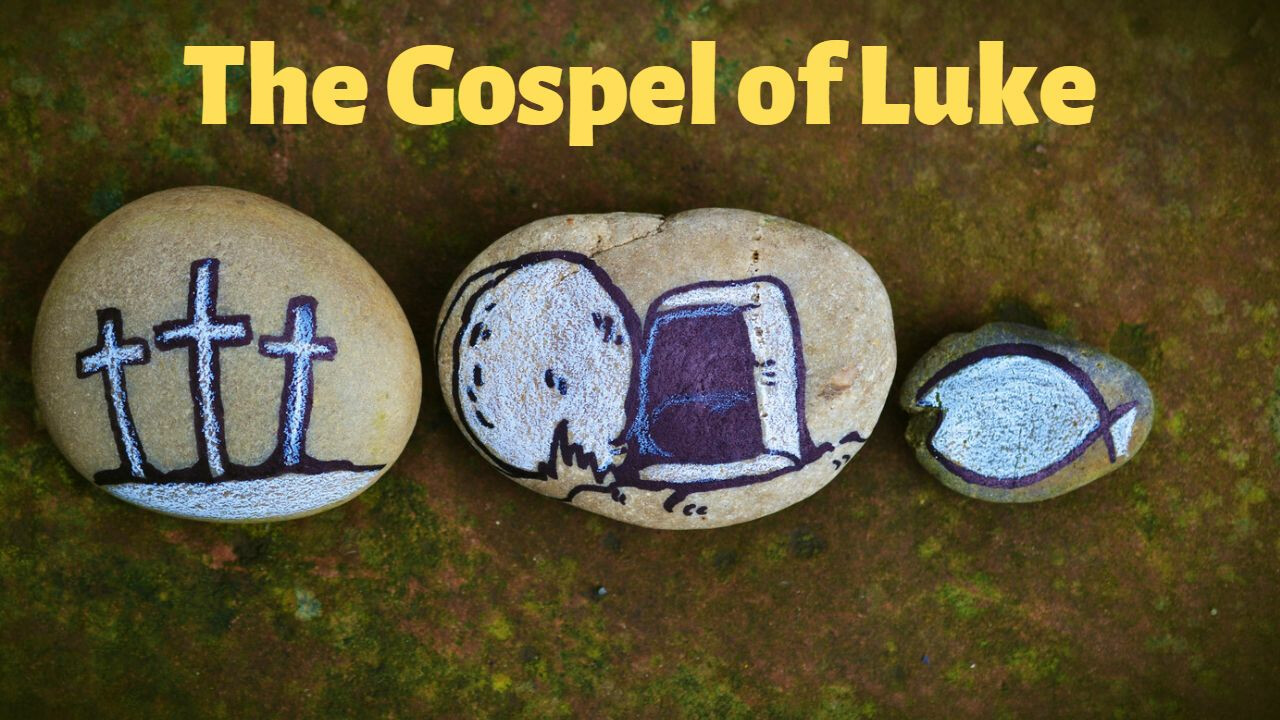
The Gospel of Luke is best described by its author in the first four verses of the book: "Many have undertaken to draw up an account of the things that have been fulfilled among us, just as they were handed down to us by those who from the first were eyewitnesses and servants of the word. With this in mind, since I myself have carefully investigated everything from the beginning, I too decided to write an orderly account for you, most excellent Theophilus, so that you may know the certainty of the things you have been taught."


